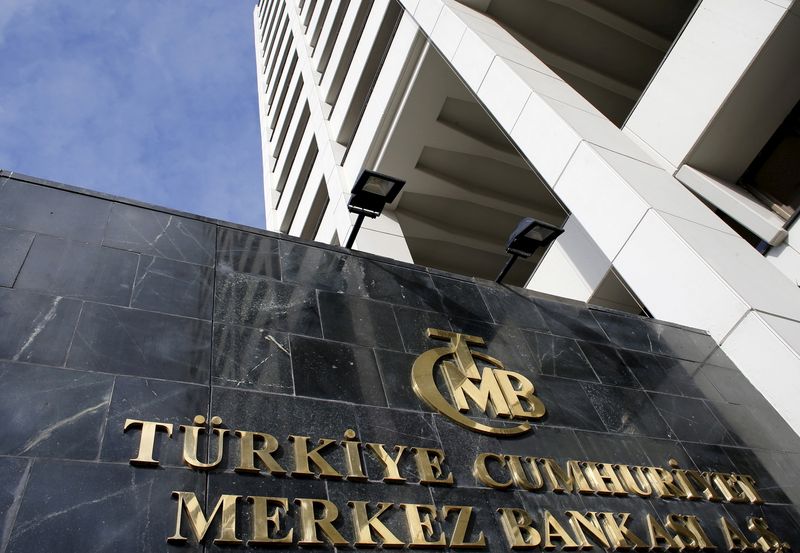By Nevzat Devranoglu and Ebru Tuncay
ANKARA (Reuters) – Turkish banks have restricted access to some individual loans and postponed decisions on extending corporate loans following new regulations introduced since Sunday’s inconclusive presidential vote and ahead of a May 28 runoff, bankers said.
Some banks have raised monthly mortgage loan rates above 3% and car loan rates have reached 4%, the bankers said.
Monthly interest rates for personal loans over 70,000 lira ($3,590) have neared 5% since the new regulations by the Turkish central bank (TCBM), they added.
However, bankers emphasise that lending at such rates is now very limited, with loans being provided only when obligatory.
President Tayyip Erdogan is in pole position to win the runoff and thus extend his two-decade rule by a further five years after an unexpectedly strong showing in Sunday’s first round when he fell just short of the 50% needed to win outright.
Erdogan’s ruling AK Party and its nationalist and Islamist partners also won a parliamentary majority in Sunday’s election.
Investors are wary of an Erdogan victory because he has championed unorthodox economic policies that have seen the central bank slashing interest rates even as inflation has soared to as much as 85% last year, exacerbating a cost-of-living crisis for millions of Turks.
Annual inflation stood at 43.7% in April.
UNCERTAINTY
Credit card cash advances, which had been the cheapest and most common borrowing option for individuals before the elections, are no longer available under the new central bank regulations. Banks had been cutting back on such advances even before Sunday’s first round.
Banking sources said the latest regulations were primarily aimed at slowing the growth of individual loans, which had skyrocketed before Sunday’s election.
Banks are also keen to see the post-election policies of the winning presidential candidate before granting long-term corporate loans.
“Financial institutions, which are uncertain about economic policies and costs after the election, are trying to avoid granting loans, if possible, within the 15-day period following the first round of voting,” said Seref Fayat, chairman of the Clothing and Apparel Industry Assembly.
“As a result, the difficulty in securing loans is increasing day by day, hour by hour.”
The central bank has also taken measures to encourage the conversion of foreign currency deposits into lira by the end of the year.
($1 = 19.5047 liras)
(Additional reporting by Ceyda Caglayan; Writing by Ece Toksabay; Editing by Daren Butler and Gareth Jones)
